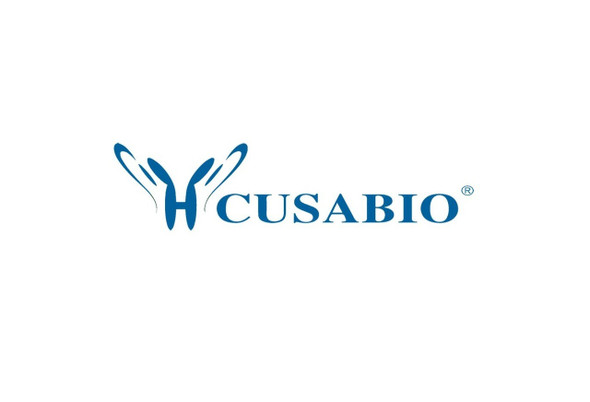Cusabio Active Proteins
Recombinant Mouse C-C motif chemokine 25 protein (Ccl25) (Active) | CSB-AP001371MO
- SKU:
- CSB-AP001371MO
- Availability:
- 5 to 10 Working Days
Description
Recombinant Mouse C-C motif chemokine 25 protein (Ccl25) (Active) | CSB-AP001371MO | Cusabio
Protein Description: Full Length of Mature Protein
Alternative Name (s) : Chemokine TECK, Thymus-expressed chemokine
Gene Names: Ccl25,Scya25,Teck
Research Areas: Immunology
Species: Mus musculus (Mouse)
Source: E.Coli
Tag Info: Tag-Free
Expression Region: 24-144aa
Sequence Info: QGAFEDCCLG YQHRIKWNVL RHARNYHQQE VSGSCNLRAV RFYFRQKVVC GNPEDMNVKR AIRILTARKR LVHWKSASDS QTERKKSNHM KSKVENPNST SVRSATLGHP RMVMMPRKTN N
Biological Activity: Fully biologically active when compared to standard. The biological activity determined by a chemotaxis bioassay using human monocytes is in a concentration range of 5.0-50 ng/ml.
MW: 14.1 kDa
Purity: >95% as determined by SDS-PAGE and HPLC.
Endotoxin: Less than 1.0 EU/µg as determined by LAL method.
Relevance: Potentially involved in T-cell development. Recombinant protein shows chemotactic activity on thymocytes, macrophages, THP-1 cells, and dendritics cells but is inactive on peripheral blood lymphocytes and neutrophils. Binds to CCR9. Binds to atypical chemokine receptor ACKR4 and mediates the recruitment of beta-arrestin (ARRB1/2) to ACKR4.
PubMed ID: 9285413; 10602049; 16517733; 16141072; 19468303; 15489334
Notes: Repeated freezing and thawing is not recommended. Store working aliquots at 4℃ for up to one week.
Function: Potentially involved in T-cell development. Recombinant protein shows chemotactic activity on thymocytes, macrophages, THP-1 cells, and dendritics cells but is inactive on peripheral blood lymphocytes and neutrophils. Binds to CCR9. Binds to atypical chemokine receptor ACKR4 and mediates the recruitment of beta-arrestin (ARRB1/2) to ACKR4.
Involvement in disease:
Subcellular Location: Secreted
Protein Families: Intercrine beta (chemokine CC) family
Tissue Specificity: Specifically expressed by thymic dendritic cells. High levels in thymus and small intestine.
Paythway:
Form: Lyophilized powder
Buffer: Lyophilized from a 0.2 µm filtered PBS, pH 7.4
Reconstitution: We recommend that this vial be briefly centrifuged prior to opening to bring the contents to the bottom. Please reconstitute protein in deionized sterile water to a concentration of 0.1-1.0 mg/mL.We recommend to add 5-50% of glycerol (final concentration) and aliquot for long-term storage at -20℃/-80℃. Our default final concentration of glycerol is 50%. Customers could use it as reference.
Uniprot ID: O35903
Uniprot Entry Name: CCL25_MOUSE
HGNC Database Link: N/A
UniGene Database Link: UniGene
KEGG Database Link: KEGG
STRING Database Link: STRING
OMIM Database Link: N/A









